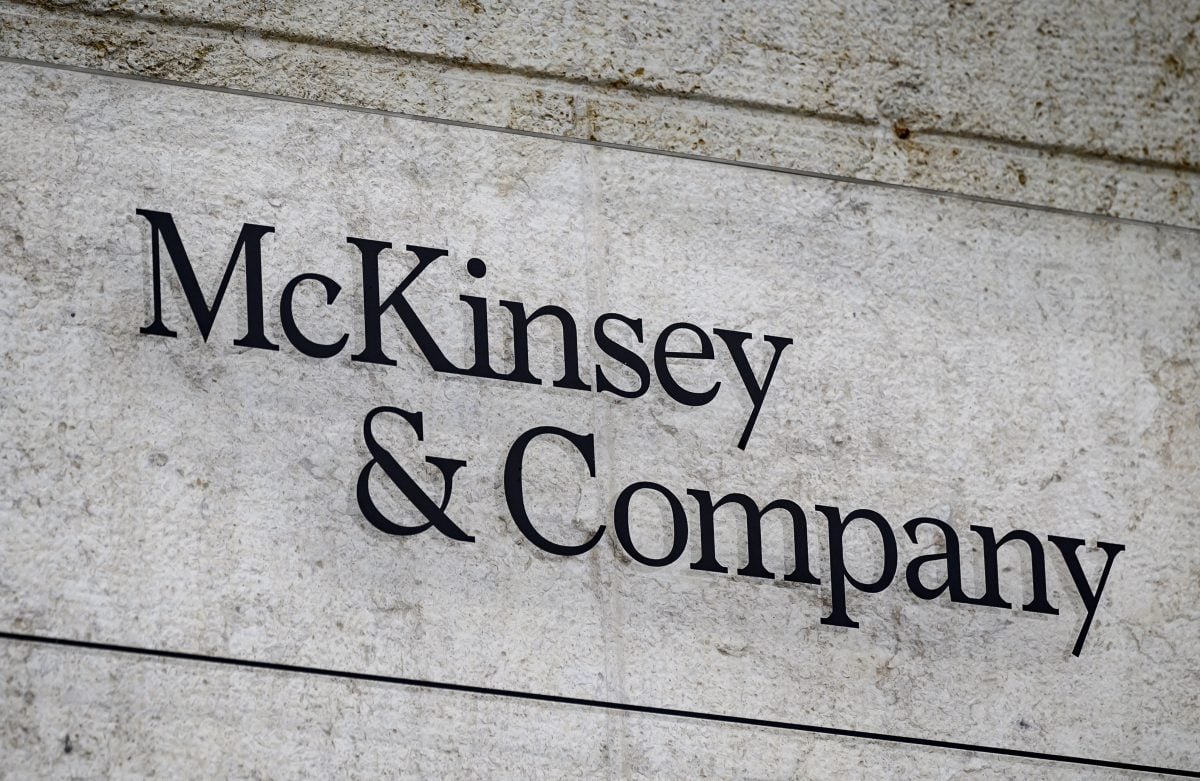BOSTON, (Reuters) – McKinsey & Co has agreed to pay $650 million to resolve charges over advice it provided Purdue Pharma on how to “turbocharge” sales of its addictive painkiller OxyContin, the U.S. Department of Justice said yesterday.
The consulting firm entered into a five-year deferred prosecution agreement filed in federal court in Abingdon, Virginia, to resolve criminal charges brought as part of the latest corporate prosecution concerning the marketing of addictive painkillers that helped fuel the deadly U.S. opioid epidemic.
A former senior McKinsey partner, Martin Elling, has also agreed to plead guilty to obstructing justice by destroying records concerning McKinsey’s work for Purdue. He is set to plead guilty on Jan. 10 and faces up to a year in prison under his plea agreement. His lawyer declined to comment.
Prosecutors said the case marked the first time a management consulting firm had been held criminally responsible for advice that it had given that resulted in a client committing a crime and should be a warning to the rest of the consulting sector.
“We will cut through the slick PowerPoints and the consultant speak and hold you accountable for your conduct if you engage in criminal violations,” U.S. Attorney Joshua Levy of Massachusetts said at a press conference in Boston.
The case was the latest to emerge from years of litigation and investigations into the extent that major drugmakers, drug distributors, pharmacies and corporations contributed to the epidemic. Nearly 727,000 people in the U.S. have died from opioid overdoses from 1999 to 2022, according to the U.S. Centers for Disease Control and Prevention.
The case against McKinsey followed Purdue’s own guilty plea in 2020 to charges covering widespread misconduct regarding its handling of prescription painkillers, including conspiring to defraud U.S. officials and pay illegal kickbacks to both doctors and an electronic healthcare records vendor.
Purdue is currently involved in court-ordered mediation to rework a multibillion-dollar civil settlement with states, local governments and others in bankruptcy proceedings after the U.S. Supreme Court turned aside its initial deal. The company yesterday said it aims to use settlement proceeds for opioid abatement and to compensate victims.
Prosecutors said Purdue in the wake of an earlier criminal case against the drugmakers over its marketing of OxyContin had obtained approval in 2010 with McKinsey’s advice for a new, reformulated version of the drug with abuse-deterrent properties.
When sales of OxyContin plummeted following its release, Purdue turned to McKinsey, which in 2013 crafted a strategy to “turbocharge” sales that involved targeting “high-value” prescribers in the medical field — including one who prescribed opioids for illegitimate uses, prosecutors said.
“McKinsey’s strategy resulted in prescriptions for OxyContin that were unsafe, medically unnecessary, and lacked a legitimate purpose and were often diverted,” U.S. Attorney Christopher Kavanaugh of the Western District of Virginia said.
McKinsey was charged with conspiring to misbrand a drug and obstruction of justice. Those charges would be dismissed if it abides by the terms of the agreement for five years. It also agreed to resolve civil claims under the False Claims Act.
McKinsey in a statement said it was “deeply sorry.” It ceased advising clients on opioid-related businesses in 2019, and said its work for opioid manufacturers “will always be a source of profound regret for our firm.”
McKinsey previously reached agreements totaling nearly $1 billion to settle widespread lawsuits and other legal actions alleging the company helped fuel the opioid epidemic through its work advising OxyContin maker Purdue Pharma and other drugmakers.
“We should have appreciated the harm opioids were causing in our society and we should not have undertaken sales and marketing work for Purdue Pharma,” McKinsey said in a statement.
Another McKinsey ex-partner accused of communicating about the deletion of documents and fired by McKinsey said on Friday that he plans to continue pursuing a lawsuit against his former employer. McKinsey has said the termination was proper and for serious violations of its professional standards.
“I feel vindicated,” the other ex-partner, Arnab Ghatak, said in a statement. “As I have always said, I never engaged in improper deletion and McKinsey behaved unconscionably in scapegoating me and defaming me repeatedly.”
Levy, the U.S. attorney in Massachusetts, said that while prosecutors were open to receiving more information about the McKinsey case, “we think this brings this matter to a conclusion.”

